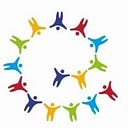What does it mean to be European? 🌍
Last October 25 participants from Poland, Spain, Greece, Germany, Serbia, Türkiye and Cyprus met in Munich and set out on a quest to explore the question:
“What does it mean to be European”.

Over the course of 6 days, they explored dialogue as a tool for peace and democratic citizenship.
Here are the key takeaways.
Our key learnings:
💡 Dialogue is not about finding a final answer — it’s about staying engaged.
💡 Through dialogue, we can bridge our differences and find common ground.
💡 Europe is built on shared values, cultural diversity, and personal responsibility.

Shared Values
Throughout the training the topic of shared values as a defining feature of being European kept popping up. Values that go beyond country borders and are viewed as a connecting factor.
“[Being European] means having the same values as other European people have.”
“[Being European] means to live in a Europe where everyone has common values and ideas.”
Diversity
Another topic that was mentioned often in the discussions was diversity — in terms of languages, traditions, etc. Diversity was considered an important factor when it comes to being European.
“To be European means belonging to the countries and people of Europe, with their various languages, traditions, and histories.”
Responsibility
But being European goes beyond shared values and diversity, it is also connected with the idea to take responsibility for oneself as well as for others.
“[To be European means] being aware of one’s rights, privileges and current knowledge. As well as […] helping others who don’t have the same opportunities.”

